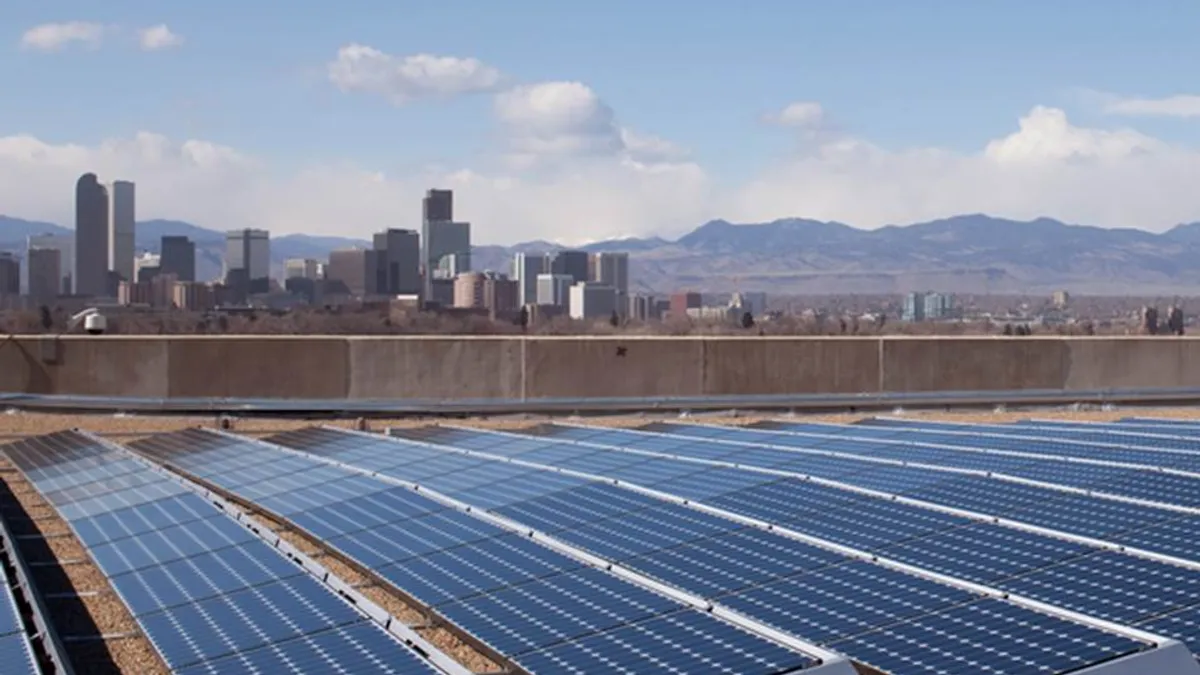Dive Brief:
- A Nevada task force convened by Gov. Brian Sandoval (R) to promote renewable energy development rolled out a list of recommendations for the 2017 Legislative session, including a grandfathering provision for existing net metering customers and a boost to the state's renewable portfolio standard.
- The New Energy Industry Task Force, brought together after a controversial net metering decision last year, seeks to amend the RPS to trim the amount of fossil fuel generation down to 60% by 2026, 55% by 2033 and 40% by 2040.
- Other recommendations include strengthening efficiency standards and amending the Integrated Resource Planning process to promote more participation, diversify energy portfolios and include emerging technologies.
Dive Insight:
Nevada has been in the national spotlight for a controversial decision regarding rooftop solar. As a result of the backlash, Gov. Sandoval is seeking to reshape Nevada's image into one more friendly to renewable energy development.
Earlier this year, the Public Utilities Commission of Nevada finalized their decision to end retail rate net metering and increase fixed charges over a 12-year span. Solar advocates and businesses cried foul, celebrities protested and Presidential candidates condemned the decision.
In the end, two major solar companies ceased operations in the state, and solar applications have plummeted more than 90% compared to last year.
Now Nevada stakeholders are trying to figure out how to bring back rooftop solar by ensuring some 23,000 existing net metered customers can receive the proper remuneration for their excess energy. The task force recommended the legislature come up with a bill implementing net metering over a 20-year span, with the cutoff date set at December 31, 2015.
SolarCity recently rolled out a white paper mapping out the benefits rooftop solar provides to Nevadans. The paper reported rooftop solar arrays deliver 1.6 cents in net benefits to all ratepayers for every kWh generated, and 3.6 cents when environmental benefits are included.
And another report from Brookings Institution said net metering benefits all parties when every external and inherent benefit is factored in and doesn't significantly shift grid maintenance costs to non-rooftop solar customers.
Correction: An earlier version of this article said the task force recommended a 50% RPS. That is incorrect. It was recommended by their technical staff and voted down yesterday. The article also said the task force recommended implementing the original net metering rates for existing customers over a 25-year span, but the Journal-Review reports that was later reduced to 20 years.














